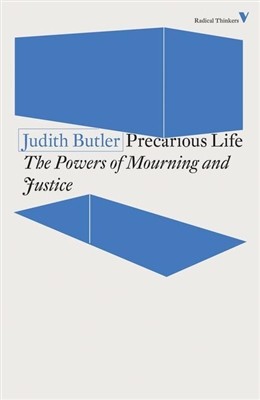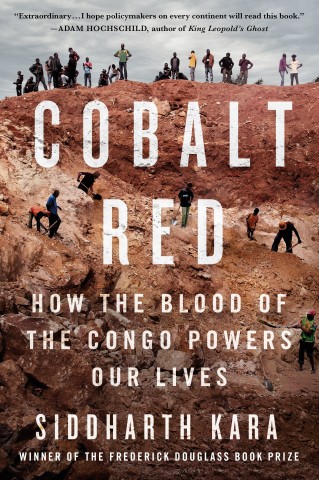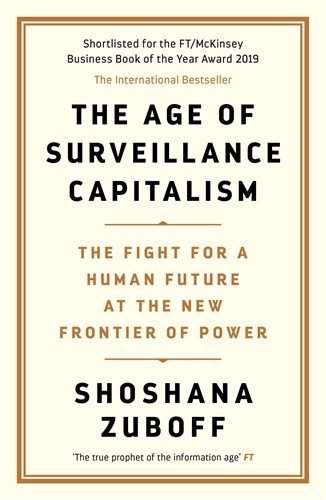Judith Butler's "Precarious Life: The Powers of Mourning and Justice" (2004) was published in the "Radical Thinkers" series of Verso Books. The book is a series of essays written after Sept 11, 2001, collected in this short publication of ~150 pages (of writing, excluding Notes). In the Preface, the author suggests in the years following Sept 11 intellectuals and journalists did not uphold their duty to justice, wherein an injustice muted critical discourse and public debate. The specifics of the essays are less timely today, but raise general questions about power – power over media and what can be spoken in the public sphere, power over what can and cannot be asked or discussed, power over life and death, the power to decide whose life should be mourned and whose ignored. The creation of binaries of the with-us-or-against-us type, stifled the ability to engage, Butler for example suggest that opposing war was equated with sympathizing or justifying terrorism. While the details have changed, the processes persist and the arguments in this book remain relevant. Worth a read.
Cobalt Red: How the Blood of the Congo Powers Our Lives (2022) is a journalistic take on the mining of cobalt in DR Congo, written by Siddharth Kara (the author has published other books on modern slavery). This book focuses on cobalt, the mineral that is critical for nearly all of our rechargeable devices and much of the 'green' economy, with the DR Congo providing the majority of the world's cobalt supply. This book is a sort of extended version of Amnesty International reporting on cobalt (e.g., here from 2016) or that of Human Rights Watch (e.g., here). Parts of the book verge on slightly paraphrased versions of those reports.
The author spent a few months in the country, over a series of visits. With thick description (read: travel journal with basic context and history, peppered with random facts, similar to Wikipedia reading), this book appears to aim to reach a general audience (successfully, as a best seller). The Amnesty or Human Rights Watch reports are sufficient for anyone interested in understanding the issues involved. As much as the author wants to address the crimes occurring, the book perpetuates a dehumanizing narrative of DR Congo and the Congolese people – seemingly in an effort to emphasize the appalling situation. The book draws on colonial language and sources (the history of DR Congo is centered fully around European interactions with it, European 'discoveries' and so forth – apparently no other history is worth telling, or as Hagel suggested, that there is no other history). In the expose style of journalism, the book delves into the depths of the problem, but offers little in the way of solutions (beyond generics). For anyone following the issue of cobalt and/or familiar with DR Congo, there is not much new from this book (and could be frustrating).
The edited collection, Thomas Pogge and His Critics (2010), edited by Alison Jaggar, is an excellent collection of chapters by an exceptional line up of philosophers focused on justice. The critics present a series of challenges, critiques and clarifications for Pogge's work, such as on positive duties, the inclusion of rights protection, the causes of global poverty and calls for change, amongst others. The final chapter is a (lengthy) response by Thomas Pogge himself to the chapters. Recommended for those interested in the philosophy and ethics related to global justice. A few notes:
Alison Jaggar in the Introduction: "Pogge regards the global order as unjust on several levels. Most obviously, many trade treaties, tariffs, antidumping laws, agricultural subsidies, and intellectual property rights unfairly provide special advantages to wealthy and powerful countries which are already reaping unjust benefits from their violent role in a world history characterized by conquest, colonization, exploitation, and genocide." (p. 2-3)
Alison Jaggar in the Introduction: "Pogge argues that the citizens and governments of wealthy powerful countries have violated the uncontroversial and morally fundamental requirement not to cause severe harm to innocent people for minor gains. It is this culpability that constitutes the basic and incontrovertible ground of our responsibility to address global poverty." (p. 4)
We are increasingly surrounded by technology, the data collection it employs is not only pervasive but also seemingly unescapable. In 2019 Shoshana Zuboff wrote "The Age of Surveillance Capitalism: The Fight for a Human Future at the New Frontier of Power", which has gone viral (for a social sciences academic-ish book), being cited nearly 10,000 times so far. The book is 691 pages and well beyond possible to summarize in a few lines. And, an amazing amount has changed since 2019 alone. The book may be longer than it needed to be, as the author weaves in personal and historical stories (which add layers of interesting nuance), however these also may attract a broader readership for a book than is more engaging and storytelling than a typical academic one. A few quotes to spark interest for anyone who has not yet read it.
The book begins with a definition: "Sur-veil-lance Cap-i-tal-ism, n. 1. A new economic order that claims human experience as free raw material for hidden commercial practices of extraction, prediction, and sales; 2. A parasitic economic logic in which the production of goods and services is subordinated to a new global architecture of behavioral modifications; 3. A rogue mutation of capitalism marked by concentrations of wealth, knowledge, and power unprecedented in human history; 4. The foundational framework of a surveillance economy; 5. As significant a threat to human nature in the twenty-first century as industrial capitalism was to the natural world in the nineteenth and twentieth; 6. The origin of a new instrumentarian power that asserts dominance over society and presents startling challenges to market democracy; 7. A movement that aims to impose a new collective order based on total certainty; 8. An expropriation of critical human rights that is best understood as a coup from above; an overthrow of the people's sovereignty."
"Surveillance capitalism operates through unprecedented asymmetries in knowledge and the power that accrues to knowledge. Surveillance capitalists know everything about us, whereas their operations are designed to be unknowable to us. They accumulate vast domains of new knowledge from us, but not for us. They predict our futures for the sake of others' gain, not ours." (p. 11)
"Google's stores of behavioral surplus now embrace everything in the online milieu: searches, e-mails, texts, photos, songs, messages, videos, locations, communication patterns, attitudes, preferences, interests, faces, emotions, illnesses, social networks, purchases, and so on. A new continent of behavioral surplus is spun each moment from the many virtual threads of our everyday lives as they collide with Google, Facebook, and, more generally, every aspect of the internet's computer-mediated architecture. Indeed, under the direction of surveillance capitalism the global reach of computer mediation is repurposed as an extraction architecture." (p. 128-129)
"Surveillance capitalism's antidemocratic and antiegalitarian juggernaut is best described as a market-driven coup from above. It is not a coup d'etat in the classic sense but rather a coup de gens: an overthrow of the people concealed as the technological Trojan horse that is Big Other. On the strength of its annexation of human experience, this coup achieves exclusive concentrations of knowledge and power that sustain privileged influence over the division of learning in society: the privatization of the central principle of social ordering in the twenty-first century. Like the adelantados and their silent incantations of the Requirimiento, surveillance capitalism operates in the declarative form and imposes the social relations of a premodern absolutist authority. It is a form of tyranny that feeds on people but is not of the people. In a surreal paradox, this coup is celebrated as "personalization," although it defiles, ignores, overrides, and displaces everything about you and me that is personal." (p. 513)




